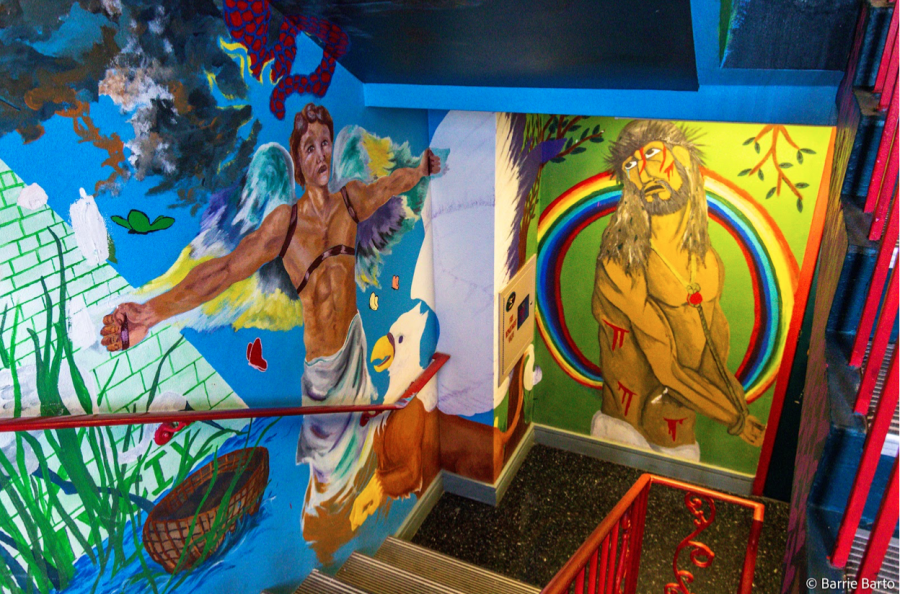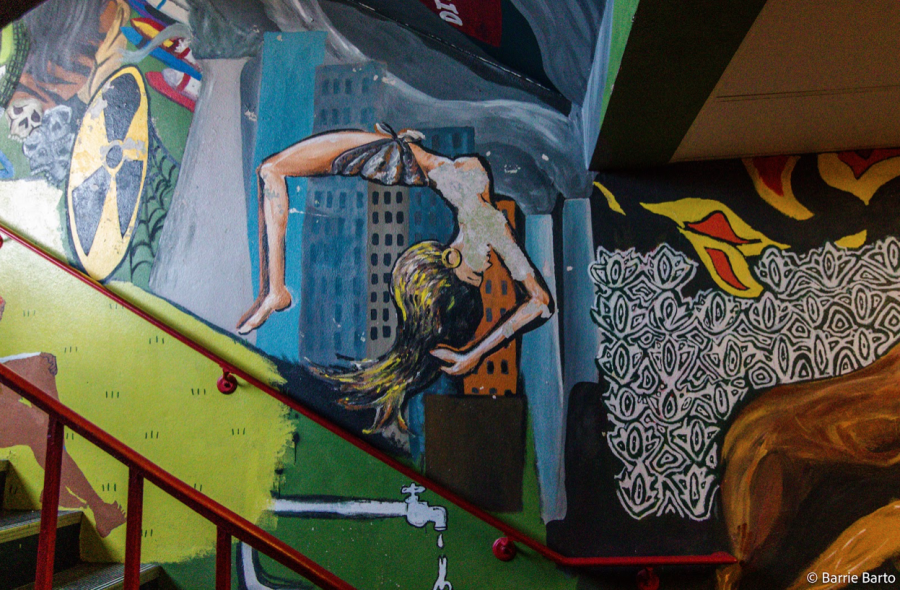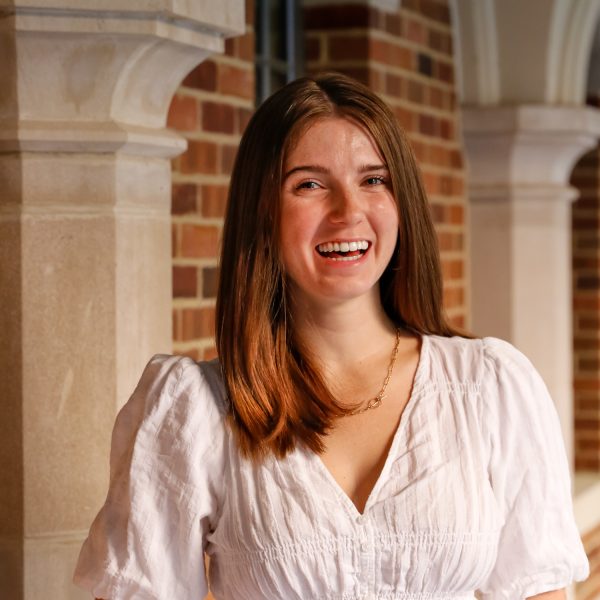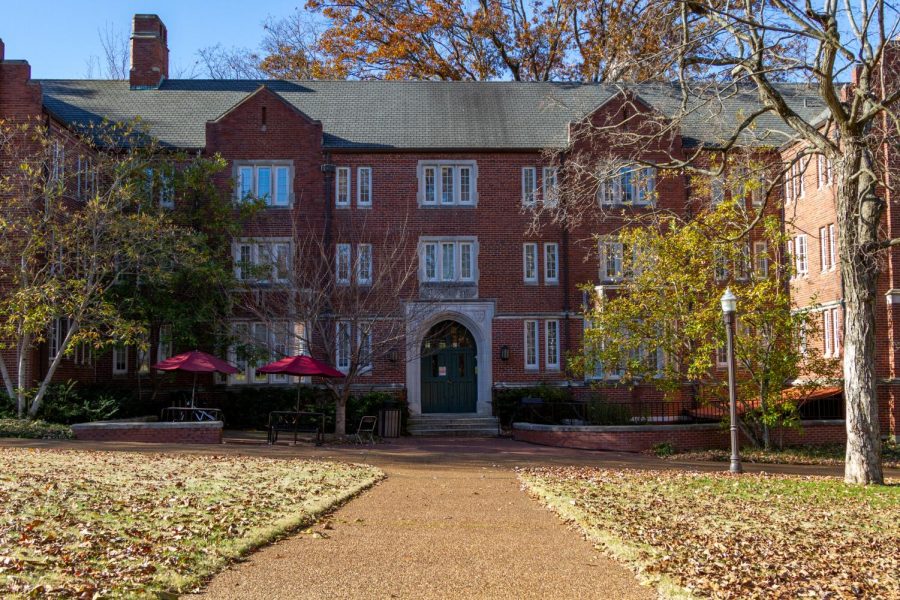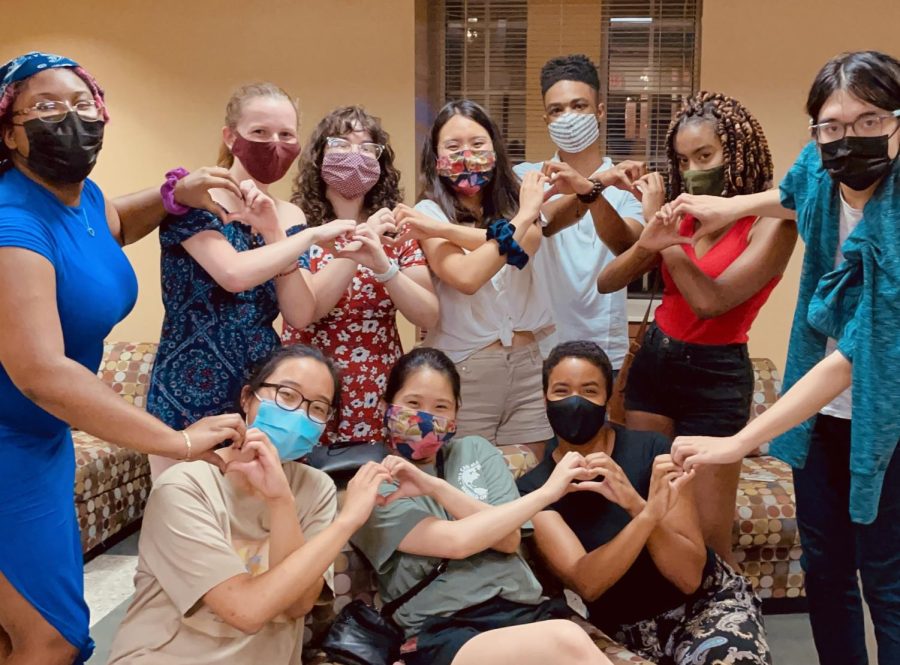McGill Hall, the residential building for students in the McGill Project, is the only on-campus residential space that is autonomous from Vanderbilt.
McGill has the ability to regulate certain rules, independent of Vanderbilt’s control. This independence has allowed for the creation of murals in the building, a more lenient alcohol policy and student-chosen gender neutral bathrooms in the hall.
McGill is one of three Living Learning Communities (LLCs) at Vanderbilt, along with McTyeire International House and Mayfield Place. These communities are structured around creating an environment for students with similar interests.
“McGill does operate slightly differently than other residence halls by the nature of its history and LLC status,” the Office of Housing and Residential Experience (OHARE) said in an email to The Hustler. “It has autonomy to vote on certain issues reflected in its constitution.”
According to Kelly Morgan, McGill’s current president, McGill had always been “antagonistic” to Vanderbilt’s rules and restrictions. She said the drive to become autonomous from the university stemmed from a student painting a staircase in McGill in the 1970s, only for OHARE to paint over it. After some back-and-forth conversations with OHARE, Morgan stated that McGill gained the ability to paint in the hall and regulate other matters, such as their alcohol policy.
Today, students are also allowed to paint murals in McGill because of its autonomy. Laurie Woods, McGill faculty member in residence, said these paintings are “indescribable” and “beautiful,” and she encourages students to sign their work.
McGill’s autonomy provides its residents with the opportunity to vote yearly on whether alcohol should be allowed in common areas, including the building’s TV lounge and outdoor patio. Alcohol is still prohibited in the lobby, classrooms and outside McGill gathering spaces, per Morgan.
“If we had an event where people could bring some [alcohol] in, we [would have] people checking IDs,” Woods said.
The second floor of McGill has gendered bathrooms and the third floor has gender-neutral bathrooms, per Morgan. McGill’s autonomy allows residents to vote yearly on whether the fourth floor has gendered or gender-neutral bathrooms. The hall’s autonomy also allows students of any gender to be roommates.
“Vanderbilt still fundamentally has regulatory control over the building,” Morgan said. “This means that safety and accessibility protocols, COVID-19 regulations, security guards, housing fees and other big picture things like that are generally the same here as everywhere else.”
McGill also hosts special programs, including McGill Hours, Coffeehouses and its Spring Showcase. McGill Hours features speakers who are invited to discuss their topics of interest. McGill Coffeehouse puts on performances by students and local community groups.
There is also a Spring Showcase that members host each year. Members present their year-long projects at the Spring Showcase. The projects are unique pieces that are a display of the members’ creative expression. A theme is chosen each year by the Executive Council of the McGill Project, composed of students elected as officers, and is voted on by members. This year the selected theme is trees.
According to OHARE, Vanderbilt’s growth as a research university during the 1970s made more students feel alienated and the campus seem impersonal. As a result, the Office of Residential and Judicial Affairs and the Department of Philosophy developed the LLCs. The McGill Project was established as a LLC in the 1970s, despite McGill Hall being built in the 1940s.
In the 1970s-80s, the McGill Project became a hub for “alternative culture” at Vanderbilt, according to OHARE. The office explained that students were able to pursue their unique interests as part of this community. OHARE also stated that McGill has a population of students with more diverse interests than the larger Vanderbilt community, causing its students to grow into a close knit community. McGill is based on the values of free thought, inclusivity and creative expression, according to Morgan.
“[McGill has] always been a place for the outcasts and the people who don’t fit in as much in the regular Vanderbilt mold,” Morgan said.
Per Morgan, students can become involved in the McGill community by attending their events that are open to all Vanderbilt students, applying to become a resident or joining its Satellite Program.
“We have programming all the time, so it’s really easy to meet other people and establish relationships,” Corrina Lueptow, sophomore and McGill resident, said. “We’re somewhat smaller than huge dorms, so we’re a tight-knit community.”
Morgan said she is happy with the community that has developed in McGill.
“We are happy to be at McGill,” Morgan said. “We are proud of the art we create, we are proud of the work that we do to…foster a more welcoming and inclusive Vanderbilt and we’re definitely proud of consistently being true to ourselves.”
The application to live in The McGill Project is open through Feb. 25 and students can apply in the Housing Portal.

